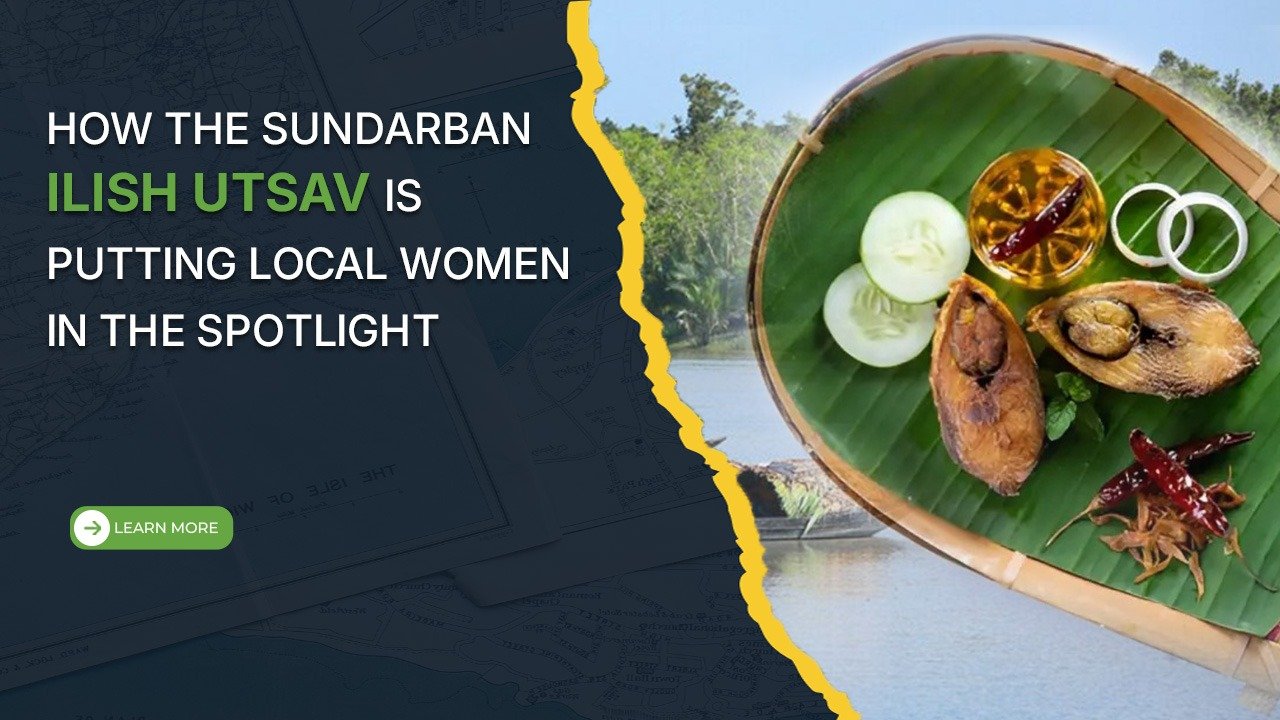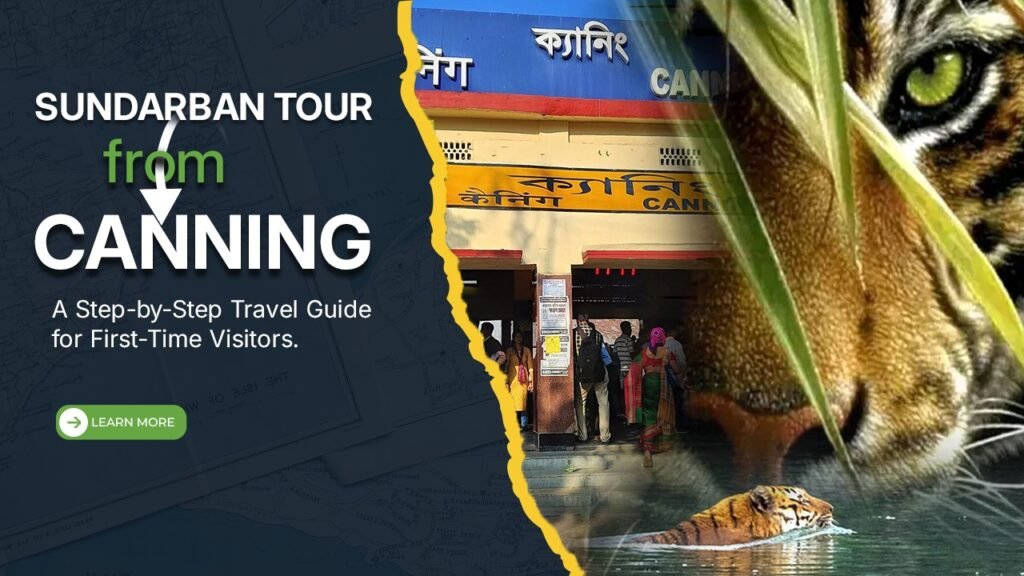The Sundarban Ilish Utsav is more than just a celebration of the iconic and beloved hilsa fish, or ilish, as it’s called locally. Held annually in the Sundarbans region of West Bengal, this festival is a vibrant celebration of culture, community, and culinary delight. However, beyond its dazzling events, exquisite food stalls, and nod to local traditions, there’s another layer of significance that sets it apart.
This unique festival is emerging as a platform to highlight the vital role of local women, placing them in the spotlight of an industry traditionally dominated by men. Whether in fishing, selling, or supporting sustainable practices, women have become essential contributors to the success of the ilish industry and the Utsav itself. This article explores how the Sundarban Ilish Utsav empowers women, fuels economic growth, and addresses sustainability while enriching the lives of families across the region.
The Critical Role of Local Women in the Ilish Industry
When most people think of fishing, they picture boats bobbing in the water, nets cast wide, and predominantly male fishermen driving the practice. But in the Sundarbans, women are quietly revolutionizing the industry. While men venture out to catch the prized ilish, women take charge onshore, ensuring the fish moves seamlessly from riverbanks to regional markets.
During the Ilish Utsav, this dynamic contribution is highlighted like never before. Women establish stalls showcasing ilish-centric dishes, manage logistics for processing fish, and act as central figures in promoting sustainable fishing practices. They are not merely bystanders but are actively shaping the industry and the cultural narrative surrounding the hilsa fish.
Economic Empowerment and Its Ripple Effects
One of the most profound impacts of the Sundarban Ilish Utsav is the economic empowerment of women. The festival creates seasonal income opportunities that significantly improve financial stability for thousands of families in the region. Women play diverse roles during the festival—from selling cooked dishes such as ilish macher paturi (hilsa wrapped in banana leaves) to crafting traditional decorations and managing events.
For many women, these opportunities go beyond short-term gains. Micro-entrepreneurs who gain visibility through the Utsav often find year-round markets for their work. Some, inspired by the confidence and income the festival brings, have used it as a springboard to launch small-scale businesses like spice making, handicrafts, and even sustainable packaging solutions for fish products.
The Numbers Speak
Consider this data from last year’s Utsav:
- An estimated 70% increase in household income on average for families involved in fish-related work during festival season.
- Over 1,000 women-led stalls, generating significant revenue while gaining prominence in community markets.
- Nearly 80% of women reported using festival earnings for education, healthcare, or investments in long-term income-generating ventures like sewing machines or livestock.
Stories of Empowerment
Behind these numbers are the stories of individual women whose lives have been transformed. Take Maya Das, for example. Once entirely dependent on her fisherman husband’s seasonal income, she took center stage at the Sundarban Ilish Utsav three years ago by selling home-cooked ilish dishes from a tiny stall.
“The first year, I only made enough to buy school supplies for my daughters. But by the second year, I was able to save for my own taurpal [small boat] to help transport fish,” Maya says with pride. Today, she employs two other women for her growing business, inspired entirely by her Utsav experiences.
Then there’s Nafisa Begum, who previously worked as a part-time seamstress. She discovered a niche market during the Ilish Utsav by sewing eco-friendly cloth bags for storing fish, ensuring minimal use of plastic. Her popular products are now being sold beyond the Sundarbans, and she credits the festival’s exposure for her flourishing enterprise.
Challenges and Real Solutions
Despite the triumphs, the women of the Sundarbans still face numerous challenges. Limited access to resources such as cold storage, lack of education or business training, and persistent gender inequality in decision-making roles hinder their progress.
Fortunately, the Sundarban Ilish Utsav is stepping up to address some of these issues. Organizers have partnered with NGOs and local authorities to offer initiatives such as:
- Skill Development Programs: Free workshops on cooking, packaging, and business management provided for women running stalls.
- Subsidized Equipment: Support for cold storage units and better transportation to preserve fish quality.
- Micro-Loans: Access to small loans has enabled women to invest confidently in their businesses.
These efforts have already borne fruit. For instance, with access to improved storage solutions, spoilage rates for hilsa have dropped by 25%, translating to higher profits for women directly involved in selling fish products.
Sustainability as a Core Pillar
One distinguishing feature of the Sundarban Ilish Utsav has been its attention to sustainability. Fishing, particularly for hilsa, involves carefully balancing cultural and economic interests with environmental concerns. Overfishing and habitat destruction have been persistent issues.
The festival promotes sustainable ilish fishing by collaborating with women-led initiatives that focus on:
- Education Campaigns: Women now play a role in spreading awareness among fishermen about breeding seasons and restricted fishing zones.
- Eco-Friendly Practices: Workshops emphasize using biodegradable nets and traditional practices rather than excessive mechanization.
- Community Conservation Projects: Proceeds from the festival are channeled into mangrove reforestation, which supports the overall ecosystem and ensures a thriving habitat for fish.
Women have become the torchbearers of these initiatives, ensuring sustainable approaches are followed—both during the festival and throughout the fishing season.
Celebrating an Ongoing Revolution
The Sundarban Ilish Utsav is far more than a festival. It’s a celebration of tradition, a catalyst for women’s empowerment, and a movement towards a more sustainable future. By providing local women with a platform to showcase their talents, drive economic growth, and contribute to environmental conservation, the Utsav has become a beacon of hope across the Sundarbans region.
Such initiatives, when replicated elsewhere, could redefine the way entire communities approach gender roles, economy, and ecology. Perhaps the next time you savor hilsa, you’ll remember the heartfelt stories behind it—the women who took a leap and changed their families’ futures, one bite at a time.
If you are eager to make a tour plan for Sundarbans, you should only connect with Banalata Tour and travels.




